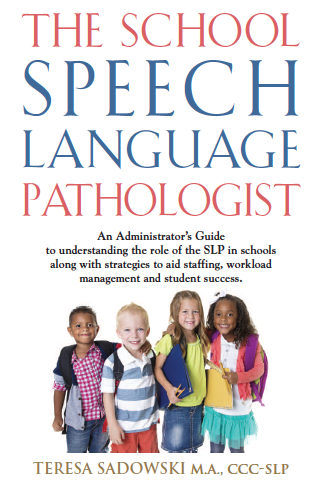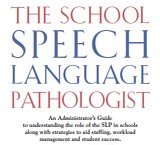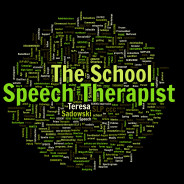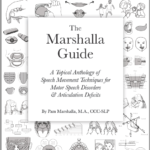My Book “The School SLP”
It’s here!!!
THE SCHOOL SPEECH LANGUAGE PATHOLOGIST is now for sale at all storefronts as an e-book for $4.99:
AMAZON:
http://www.amazon.com/dp/B00Y6YDAZI
BARNES & NOBLE:
http://www.barnesandnoble.com/w/the-school-speech-language-pathologist-teresa-sadowski/1121994087?ean=2940151592819&itm=1&usri=2940151592819
BOOKLOCKER:
http://booklocker.com/books/8038.html
ITUNES:
https://itunes.apple.com/us/book/school-speech-language-pathologist/id998181107
KOBO:
https://store.kobobooks.com/en-US/ebook/the-school-language-pathologist
Product Review: My First Sound and Word Cards
I recently came across a set of online flash cards, focusing on the language development needs of younger children. These articulation/vocabulary/phonemic awareness cards are designed Kimberly Marino M.A. CCC-SLP, and are truly worth a shout out. Ms. Marino has used her expertise as a speech language pathologist to choose early acquired high frequency words focusing on the early developing sounds of /m/, /h/, /p/, /w/, /b/, /n/ and then pairing those words with clear photographs. I particularly like the photographs, with the white background the photograph pops.
Any Speech Language Pathologist will look at these cards and see their immediate value as a therapy tool or something to give to parents for practice at home. I would have loved to have a set of these when I was working in EI or with more involved preschoolers. These cards may look simple but are tailored to the developmental needs of young children.
My First Sounds and Words cards can be purchased on Esty for $10. There are several printing options to created different sizes. There is also a My First Sounds and Words set 2 focusing on the next level of sound development T, D, K, and G.
Kimberly Marino M.A. CCC-SLP is also the author of Speech Mama Blog, Empowering parents with the tools they need to help their little one or big one become a better communicator. Follow her at thespeechmama.com
Time to check your liability insurance
With the beginning of the school year it’s a good time to check your liability policy and make sure it is up to date. Yes, you are always technically covered through the school but you also can be sued personally. It’s worth it just to have one less thing to worry about. My current policy is through Trust Risk Management Services I was pleased with what the policy provided and pricing. They will give you a quote.
What are the biggest challenges SLPs face in schools
About a week ago I asked school SLPs this question on Facebook, “What is the biggest challenge you face working in schools?” I received over 60 responses. With 30 years under my belt, I was pretty sure what the responses would be but I wanted to hear from others.
Paperwork was the biggest challenge hands down. I know my paperwork requirements have increased significantly in 30 years. The advent of the computer just increased the amount of paperwork, but helped us to do it faster. That’s just a change in society that we can’t do anything about. Imagine how long it would take us to do all our paperwork tasks by hand these days. However, the time given to me to do paperwork within the school day has shrunk as my caseload numbers have grown. Reality is we have different paperwork needs than teachers. Many of the documents that we produce have legal ramifications and must be done correctly. We have a much better chance of our documents, notes and assessments ending up in court at some point. So you would think that schools would give us significant blocks of time to organize thoughts and string coherent sentences together. What we need to do is to make those differences known and advocate for more paperwork time. It’s a little hard when your contract is basically a teacher contract not a SLP contract. Even if you are able to get your principal or other school administrators on board understanding the need, based on a contract you are only eligible for as much paperwork/prep time that teachers get.
What can be done:
Point out that you are sacrificing other support services such as classroom consult and homework in lieu of getting paperwork done.
Limit the time you spend working on paperwork at home.
Showing up not totally prepared will be an awful feeling but sometime necessary to make the point.
Say, “No I can’t do that,” when given a new paperwork task.
Keep track of paperwork and present data
Caseload
Caseload came in a close second. Caseloads are too big and too diverse. Schedules are too tight, groups are too big, groups are not matched well. We need to stop talking even to each other about caseload numbers. Caseload is just a number. What we need to do is to start emphasizing WORKLOAD. Workload will include paperwork and any other tasks that you do on a regular or as needed basis. I could treat 30 articulation students in my sleep. However, given a diverse caseload with a few severe needs thrown and you have a totally different ballgame. Longer reports, more meetings, more consultation time….more everything.
What can be done:
Again say ”No,” tell administration there is no way this workload can be completed within the specific time frame.(especially if you work part time)
Point out there isn’t enough time
Ask for more help
Point out that specialized instruction requires time and practice. Give them the realities of therapy. If you have a group of 3, working on 3 different areas, that’s only 10 minutes per student once or twice a week. That 10 minutes is only good if you haven’t been cut short by your pick up/drop off. Not enough to make effective progress.
Scheduling
Scheduling came in third. So much of the scheduling process is dependent on a decent and consistent school schedule. For 10 of my 30 years I worked at a middle school with a perfect schedule which scheduled in flexible blocks where students could receive extra support services. No other school I’ve worked in had those flexible blocks. There was only one other year where scheduling wasn’t a problem. Our program manager was very organized and had us schedule as a team one of the last days in June. She was also organized enough to have the majority of our meeting completed in early June. (yes it was an amazing year). We actually started servicing the student the second day of school in September. Although I have tried to replicate that scheduling process at other schools, I just can’t seem to get the team mentality working. State audits will ding you if there is too much time between the beginning of school and services starting on a regular basis.
What you can do:
Get the school schedule and any other information you need the minute you get in the building
If scheduling is too daunting, ask your principal to do it for you. Especially if your school has some sort of crazy waterfall schedule, an unusual day cycle or block scheduling. Make sure you use the word
Try to coordinate and schedule as a team. It streamlines the process and gets the schedule up and moving faster
Write in pencil, it’s always going to change
Expect this to be a difficult process.
Suggest a school schedule with flexible blocks
Point out anything that takes up significant time even pick up/drop off of kids.
Other areas mentioned:
Time: Not enough time to service, not enough time to consult, not enough time to educate staff not enough time to complete paperwork tasks.
IEP Season: Not sure what exactly that means but I have an idea it means all the IEPs are updated at the same time. If your IEPs are not scattered through out the year, I’ll be praying for you. I wonder if direct services cancelled during IEP Season?
No coordination to help carry over skills: This stems from lack of time, lack of understanding of our roles and lack of understanding of language disabilities.
Space: Face it we are always doomed to get the smallest, dingiest spaces, with the worse acoustics. However, what’s worse is an SLP sharing an office with 4 other people with make shift walls. Space alone speaks volumes on how we are perceived. Whenever I’m linked to a new school being built either in the town I work in or the town I live in I alway advocate for decent small spaces with good acoustics.
Medicaid: Medicaid billing is easy for some hard for others. Different states require different documentation. Some schools will have more students on medicaid than others. What I have heard of is putting time into the negotiated teachers contract to provide specific time to do this.
Lack of Parent support: It’s a fact few students actually practice their speech/language skills at home even when extensive home programs are set up. I’ve encouraged use of paper materials and apps with little to no feedback. Students actually tell me they didn’t practice. Frankly I have little time to encourage and follow up with this.
School administration not understanding who SLPs are, our diverse training and background, how we help, who we work with and our role as SLPs in schools: Too many time we are lumped in with teachers and our role is very different. My feeling is we should be working to show how we should be align with the school psychologist in terms of our overlapping interest in language/memory/neurology, our legal responsibilities, paperwork similarities and common goals we might address. That we are viewed in the same lens as teachers, I believe is the crux of the problem.
One SLP commented that even with educating several of her administrators over the years, there was never any significant changes. I believe this to be true and that is why most SLPs are just willing to go along with the status quo. It’s easy to say I have too much paperwork and to big of a caseload but problem/reasons goes much deeper than that? Why are workloads too big? Have you done anything successfully to address these issues in your school? Have you worked with other SLPs in your system or state to improve your situation? If so, share!
Footnote: I cover many of the issues mentioned in my book “The School Speech Language Pathologist An Administrator’s Guide to understanding the role of the SLP in schools along with strategies to aid staffing, workload management and student success.” I provide a breakdown of time factors, suggestions for administrators and even a little education for administrators. Hoping at some point I find out that my book made a difference somewhere.
Teresa
TPT: Love it or hate it?
I came across this blog post written a few years back “I teach Kindergarten and I don’t like Teachers Pay Teachers” by Matt Gomez kindergarten teacher. The comments posted by others have taken off. I wanted to simply comment but I knew my comment would be very verbose so I figured I could turn it into a blog post (and have another reason to mention my material on TPT). Keep in mind that my view of TPT as a Speech Language Pathologist is going to be a little different. Also Mr. Gomez isn’t the only one who doesn’t like to use TPT….lots of similar blog posts out there. [Just noted a follow up blog post by Mr. Gomez, “Teachers Pay Teachers-the Sequal” again tons of comments. I wish I had his following!]
Reading the article I can clearly understand Mr. Gomez’ point of view.
#1 Of course teachers are trying to sell things that work in their classroom. Teachers and therapists have been doing this for years. It was just a lot harder to do and they did it through the larger publishing companies. You have to look at TPT as a self publishing company. Over the course of 30 years I have purchased (at great expense) lots of books and materials from educational publishing companies that never went through trials, had data collected, was tested out or demonstrated. At least with TPT if I buy something that doesn’t work, I’ve only lost a few dollars (well maybe a more than a few with ink/paper costs). I agree that the PDF format makes it difficult to customize to totally meet the needs of a class but I’ve experienced that with lots of materials over the years. This is where your creativity should come in. Still working with materials in a PDF format is still easier to modify (the activity not the materials) than, the computer program that basically gives the kids the answers if they can figure out where to click or any of a number of applications that tout to be educational. I guess my point is there are limitations with all materials. I look for materials and Apps that fit the specific needs of my students and never buy anything just because it is cute or fun. I thoroughly look through the materials to see if it even comes close to fitting my needs. I also continue to use some materials that are over 20 years old. Why….because they are the best at targeting the specific skill I’m working on. As an SLP I can get away with old and tattered.
#2 TPT my be fostering the “laminating culture” but they didn’t create it. We’ve been laminating for years. Common Core is making teachers turn to sites like TPT for help. Schools with good curriculums have had to throw out those curriculums and materials. Most don’t have the funds or even the understanding to supply common core and teachers are trying to do the best they can. Many are worried about losing their jobs if common core isn’t followed or if their students don’t score well on a test. If the people who commented on Mr. Gomez’ site put their efforts into advocating for education instead of being miffed over comments about TPT imagine what could happen.
#3 I did cute when I was younger. My personality has changed, my workload has grown and for me there just isn’t time for cute. Even some of the school wide cutesy stuff bothers me (why do we need pajama day?). I haven’t given away a sticker in years. Kids do like to have fun and I try to foster that through hands on activities, laughing, joking and conversation, all while staying focused on my goals/student needs. I totally agree with Matt that real images and hands on materials are much more valuable than cutesy images that are basically charactitures of themselves. Learning while experiencing “real” things/situations/theories/ideas always works out better.
#4 I would be hesitant to use any item from TPT for anything more than a supplementary activity to practice skills being taught. To use a created “program” listed on TPT, the data isn’t gong to be there to support
#5 Other than tutoring (usually for a lot less than teacher pay), most teachers have few other ways to supplement their income. SLPs often give discounts for private services when insurance cannot be accessed. Even then insurance and especially medicaid/medicare, often doesn’t even come close to an expected hourly rate for speech therapy. Why shouldn’t individuals try and market their ideas. TPT just makes it easy. Speech Language Pathologists create or customize just about every bit of material they use to fit the needs of specific students. If I’ve created something that works well for me, maybe it will work for others. You never know where that one great idea is going to come from.
#6 Sharing ideas and material is wonderful. There is just no reason to reinvent the wheel every time a new subject, theory, curriculum or flavor of the day pops up. TPT is a time saver and I imagine sometimes a life saver. If you’re not a graphics wiz it’s the place to go.
Basically I like TPT and I like what it does to create business opportunities for educators. I have a few items on TPT, primarily articles suitable for a school newsletter and one killer packet of workshop materials for paraprofessionals on Speech and Language development. I doubt I’ve made 100 bucks in the three years I’ve been with TPT. I’ve purchased about 35 items on TPT and use about 10 consistently. That’s probably a higher percentage than with my purchase and used of very expensive traditional materials.
My advice…..if you’re going to use TPT
Don’t impulse buy
Use TPT products to supplement an activity or reinforce a skill not as a total lesson.
Look through the material, make sure it is something that comes very close to fitting your students specific needs.
Will your students like it?
Can you use it in different ways and with different levels?
Consider the overall cost. Educators are not business people and often don’t factor in paper, ink, wear/tear on your printer and your time
Make sure it is a time saver for you
Always check out the free downloads but don’t print unless you really like it (again time and money)
Don’t pay too much
Check out my TPT store , especially if you’re an SLP looking for articles to put in your school newsletter (a fantastic professional goal by the way) (ok I had to throw that in)
Teresa
SMART Goal Bank for SLPs-Share your SMART goals
With the new school year on the horizon, I’m going to post once again about SMART goals. As SLPs we almost always have to figure things out on our own. With the development of professional SMART goals we’ve had to be more and more creative. I’ve seen SLPs make the process extremely complicated and SLPs who make the process a lot simpler. Coming up with new and interesting SMART goals that can relate to the SLP is just not that easy. As a group we need to start sharing our ideas. There is no reason for SLPs to be reinventing the wheel.
What I would like to propose is creating a smart goal bank specifically for Speech Language Pathologists. I would have two categories one for SLPs who need individual SMART goals and one for SLPs who may be writing group or district wide SMART goals.
Submissions should include:
Specific SMART goals as they were written in your plan
Levels/ages/grades of students you worked with at the time of the smart goal
Briefly state what you did to complete the goal.
What your administrator/principal/supervisor thought of your smart goal
Level of difficulty in completing SMART goal, self judge on a 1-5 scale
Time frame it took to complete smart goal
Your name if you would like recognition
Working part time I was able to slide under the radar when it came to SMART goals until this year. My goals this year focused on education or staff and parents. My SMART goals for this past year are listed below. My goals are a little light on the measure part but I chose a “will do this” as opposed to a challenging data collection or changing outcome. In my situation this was acceptable.
I want to create a bank of SMART goals that are practical, easy to achieve, related to speech/language and not very time consuming. So please take 5 minutes to share your experience. Either respond to this blog post or email me at theschoolspeechtherapist@gmail.com. Let’s help each other out.
Teresa
I wrote these while working in an elementary school setting. This was very easy to complete because I wrote it to reflect something I do as part of therapy anyway. It is a little light on measurable. But it worked for me.
Student Learning SMART Goal(s)
Students on my caseload will spontaneously share 1-3 unique experiences each session, in a logical order with adequate details and decreased adult prompts. In addition they will ask relevant questions about other group members shared experiences.
Professional Practice SMART Goal(s)
To share my knowledge of language development with parents, support staff and administrators by providing additional information on language development and practical strategies to aid student success. Support staff will participate in an inservice to understand the role of the SLP in school, what the SLP works on and specific language strategies that support the underlying language needs in the classroom. Parents and administrators will receive additional time and materials when needed or requested, to help understanding of individual student’s specific language needs and/or disability. In addition parents, will be provided strategies, suggestions and materials to help develop underlying language needs in the home as needed.
Part 1: Analysis of Student Learning, Growth, and Achievement
When talking about novel experiences, students in both regular and special education often have difficulty providing logical, sequential, detailed information and difficulty expanding on topic. Many need too many probing questions, suggestions and models when telling about experiences.
Part 2: Assessment of Practice Against Performance Standards
As a precursor to writing, students must be able to organize ideas and details, independently, in a logical and sequential manner.
Are you looking for a smart goal idea?
Last year our school district asked all the SLPs to put together an inservice for teaching assistants. We all actually used this as an activity as one of our smart goals. I put together a packet which is divided up into two parts, a presenter copy with information to use as a guide and a participant packet that provides both information and an outline (to encourage some note taking and active listening). The information I presented in the hour long inservice included who we are, what we do, our training, who we work with, what we work on, how language difficulities impact learning along with some suggestions on what they can do in the classroom setting. With dollars tight, schools are often looking toward their own resources to share knowledge.
I was pretty much on my own when it came to writing a smart goal, I hope I got the form right. Maybe a little light on measurable. However, It worked for me.
Professional Practice SMART Goal:
To share my knowledge of language development with parents, support staff and administrators by providing additional information on language development and practical strategies to aid student success. Support staff will participate in an inservice to understand the role of the SLP in school, what the SLP works on and specific language strategies that support the underlying language needs in the classroom. Parents and administrators will receive additional time and materials when needed or requested, to help understanding of individual student’s specific language needs and/or disability. In addition parents, will be provided strategies, suggestions and materials to help develop underlying language needs in the home as needed.
If you like this idea and don’t want to reinvent the wheel, Speech and Language Services In Schools In-service for Teaching Assistants is available on Teachers Pay Teachers. I should add that I also supplemented the inservice with a grade specific language development expectations list. The inservice went over well. I received a couple of nice compliments. I think I provided a little insight if nothing else.
I need ideas!
Something about the end of the school year just sucks all my energy and creative juices. After some R & R, I’m ready to get back to work. Now I just need some ideas. Anyone have some interesting and possibly controversial topics for me to tackle?
One thing I have been doing during my down time is continuing to market my book, The School Speech Language Pathologist is an Administrator’s Guide to understanding the role of the SLP in schools along with strategies to aid staffing, workload management and student success. Most of my marketing takes place via twitter or Facebook. I sell a few copies here and there. Even in the field of speech language pathology my book is a niche book. I would love to sit at a booth during any conference and share/sell my book but the overall cost for something like that can be thousands. It is rather difficult to justify the cost when you literally make only a couple of dollars per copy anyway. Specific educational web sites won’t carry your book unless you self published through them. I imagine there are a few SLPs out there that might be in the same boat. My thought was that I could offer to split a table with several SLP authors at conferences. Anyone interested? Again, not sure with travel it would be profitable. I would probably have to find 10+ SLP/education authors to make this a go.
TPT is another resource I both contribute to and use. My products consists primarily of articles appropriate for school newsletters. (You can check out my TPT store here) I also have one product that focuses on inservice training for teaching assistants. As one of our smart goals the SLPs in my district put together some inservice training for teaching assistants on what SLPs do, the nature of students with SL difficulties and how assistants can support SL students in the classroom. I wish there was a speech and language branch of the TPT store. I feel that many of the SLP produced products get lost in the shuffle.
My principal has asked me to put together some more articles appropriate for school newsletters. While I have topics in mind again I would love ideas/suggestions.
Basically, I need some help getting my creative flow going. Has any pressing issue come to the forefront in your school setting? I’d love to hear about any unique situations positive or negative that have come up over the past year. I’m also sitting here waiting to see if ASHA will accept my presentation proposal. Since this was the first time I put a proposal together I am hopeful but realistic about getting accepted. If I do get and invitation to present I will just have to force that creative flow. That I will keep you updated on. Now how to work on all of this and still enjoy my summer?
Teresa
Thank You: Book Giveaway!
One year ago this month I published my first book The School Speech Language Pathologist, An Administrator’s Guide to understanding the role of the SLP in schools along with strategies to aid staffing, workload management and student success. I don’t have to explain to SLPs why I was compelled to write this book. It evolved first in my head, then as a powerpoint and then as a small book. Tired of feeling overwhelmed and disrespected, I pushed the completion of the book into high gear after winning a self publishing contract through my publisher Booklocker (which I highly recommend as a self publisher).
Publishing this book was a milestone in my life. To celebrate that and to thank my many followers, I want to give away 5 copies to active followers of my blog, The School Speech Therapist. To become an active follower, sign up through the feedburner link on the right. You will receive an email to activate your subscription. Winners will be chosen at random on April 30th 2016.
My book sales have been slow but steady. I’ve been pleased with the feedback I’ve received from other SLPs. I’m still working on getting it into the hands of those who need it such as school administrators. I’ll take any suggestions on how to do that. We all need to do a better job advocating for ourselves, our skills and our students. There is too much wrong with the way most of us service students in schools, primarily around workload. We have become blurred with teachers and most administrators don’t believe we have a lot to contribute. I’m rarely consulted on practices, policies or even student decisions beyond showing up to IEP meetings where they legally have to have us there. This book is just a start and I hope someone with more energy and better connections will expand the fight (yes unfortunately it is a fight at this point).
Thank you to everyone who follows The School Speech Therapist and my companion Facebook page. If you can’t wait to buy my book it is available through Amazon (see link below), Barnes and Nobel and through my publisher Booklocker.
Teresa
Scheduling and the SLP
This past week I participated in a chat on Facebook that focused on never leaving an empty space in your school schedule. I’ve know for years that when administrators see even a 15 minute block empty, they seem to think the SLP has a ton of time to spare. Not sure where this mind set comes from but I guarantee the school psychologist is not under the same scrutiny.
The fact that SLPs are having a discussion tells me there is something wrong with our situation. Either we are not respected as professionals or administrators really have no idea what we do. I’m going to go with the latter (because I can do something about that). I also know a lot of the squeezing we receive is because of budget. Administrators, especially those higher up the food chain are often not aware of our education, training and background. For some reason our profession has become aligned with teachers when we really should be aligned with the school psychologist. Many school systems are requiring our student goals to be in line with Common Core Standards when everything we we’ve ever been taught is based on child development. When and how did we let this happen? That’s an issue for another article but part of the underlying problem.
I don’t know about you but if I have a 15-30 minute block free I’m usually doing one or two of several things. I might be catching up on time because I’m running late with my sessions, I might have a report (or two), an IEP, medicaid paperwork or progress reports to work on. I might take that “extra time” to do an observation for RTI. I might do a make up session. I might find a teacher or other professional to consult with. I might test one of my students with a short attention span. I might take the time to prepare materials for my sessions. I might be responding to emails or contacting parents. I might even take the time to research or consult with another therapist on a puzzling case. You get where I’m going with this. First I really don’t believe our administrators know all the little things we do and that is our profession’s fault. Second, I don’t believe (some) administrators feel we can be independent without goofing off, that’s insulting. Third, I don’t believe administrators realize how much work we end up doing at home (teachers have the same problem).
When I complete my final schedule I always list all possible activities I might be doing during an empty block. One person in the Facebook chat mentioned that they put a question mark when scheduling their “lunch?” block because they never feel lunch is a guarantee. Reality is we have different paperwork responsibilities and need extra time in our schedules to at least get started on those activities. “Prep time” negotiated with or given to teachers does not fit our needs. We’re writing legal documents that have to hold up in court. It’s hard to write a coherent document in small blocks of time.
In the hopes of giving administrators a better idea of our role and all that we do, I wrote a book just for them. The School Speech Language Pathologist, An Administrators Guide to understanding the role of the SLP in schools along with strategies to aid staffing, workload management and student success. In this book I talk about all the little things we do, the time it takes to complete tasks, schedule solutions and so much more.
Several years back I wrote a somewhat related article called Proactive Scheduling. Using the process outlined in the article, the entire special education staff was scheduled in June for the following year. It was one of the my best professional experiences. Not only did it save massive amounts of time in September, we were able to start seeing students day one. My team facilitator initiated this scheduling process. Not only did it give her a clear picture of staffing needs she also understood our workloads. Since she took an interest in the process she never felt the need to question our time management.
OOPS! Don’t forget to renew
Well even with all my articles on the importance of liability insurance and reminderst to my readers to renew their liability insurance……guess what I did? I forgot to renew my policy by Feb 1. For some reason I had the 15th in my head. No problem I was within the grace period so Trust Risk Management renewed my policy without question. Next time you take the time to check on your CEU status (which is something else I can’t seem to remember without writing it down) check on your liability insurance renewal date.










